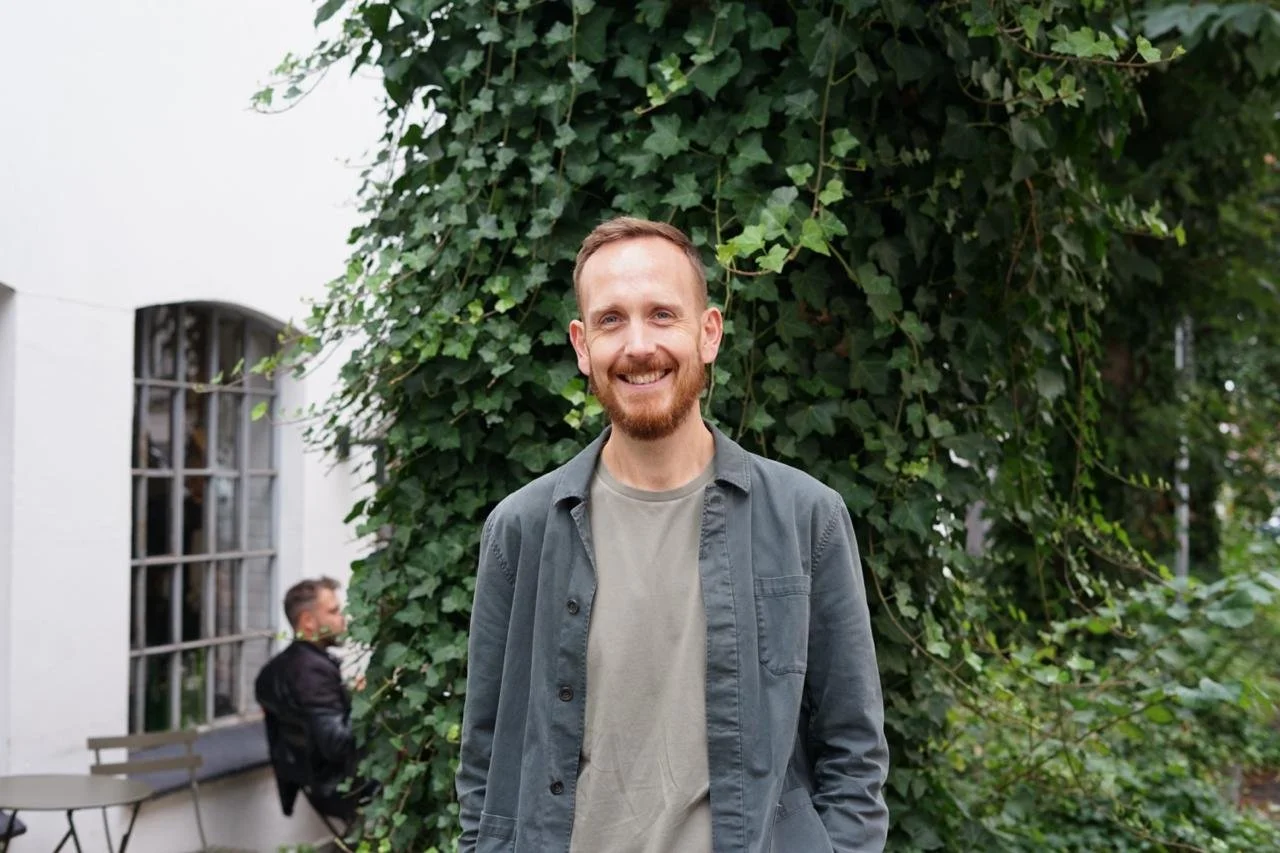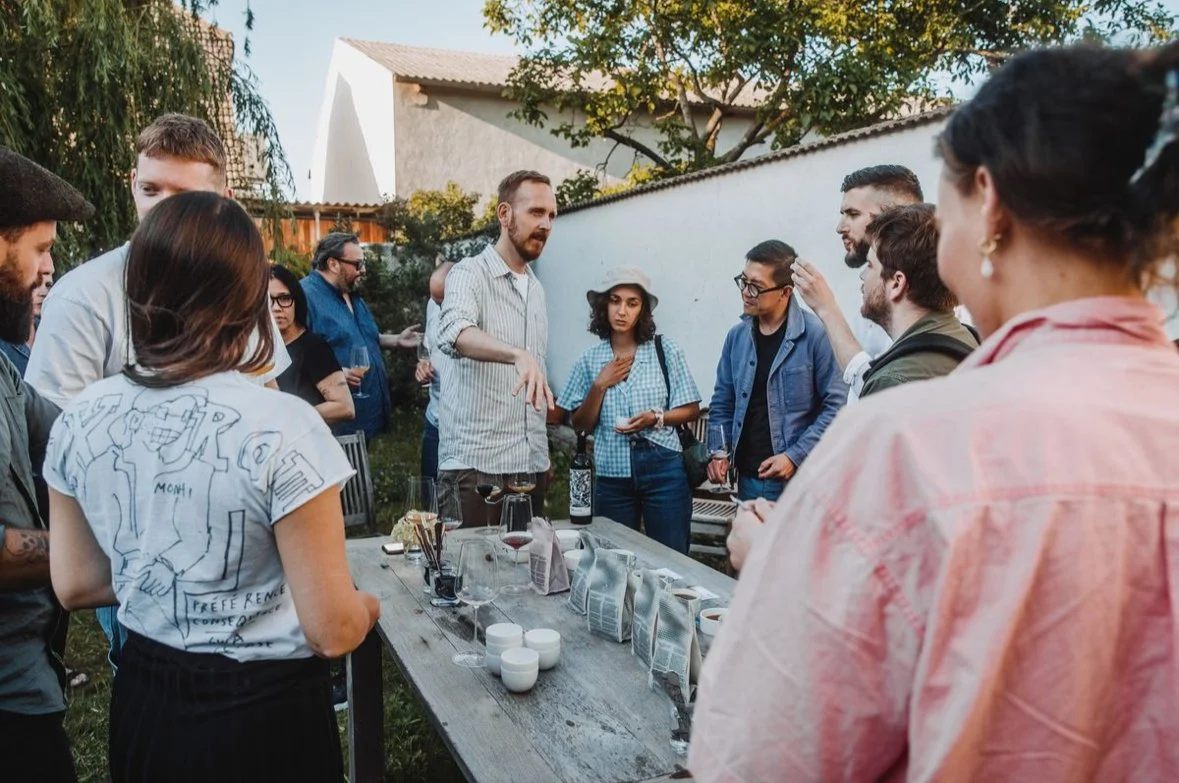Karakterre Conversations with: Klaus Thomsen
Klaus Thomsen: We believe we have to bring the farmers to the forefront instead of just baristas and roasters, as the farmers are the furthers away from the end consumer, but also the one that makes it all happen.
I was just about to finish editing this interview with Klaus Thomsen, the co-founder of Coffee Collective, when I came across a report by Javier Blas, Bloomberg’s Commodities Opinion Columnist. Blas is predicting a double-digit inflation in coffee prices very soon. Behind the increase, he says, are poor weather conditions—linked to climate change—in two of the world’s largest coffee-producing countries: Brazil and Vietnam. “If Brazil doesn’t produce a good crop in 2025, global stocks may fall to the second-lowest level in 65 years,” Blas warns. This comes on top of the fact that, for the past four years, the world has been consuming more coffee than it has been producing. Another contributing factor is the threat of upcoming U.S. tariffs—Colombia, the world’s third-largest producer, might be particularly vulnerable.
Thomsen is a key figure in the world of coffee. In 2007, he co-founded Coffee Collective, a roastery in Copenhagen, Denmark, at a time when there were virtually no small, independent roasters around. The company is credited not only with introducing a new approach to roasting—one that initiated a global movement—but also with pioneering close collaborations with coffee farmers. A conversation with Thomsen might start on roasting techniques, but he’s likely to focus on industry sustainability as the main topic. Coffee Collective has drawn global attention to how coffee is produced, much like Danish wine importers such as Rosforth&Rosforth have done for wine.
Together with their friend Tim Wendelboe of Oslo, Norway, Coffee Collective has established itself as a global reference for anyone seriously interested in coffee - or just a regular drinker that’s out there for an excellent cup. In other words, these guys are among the very best at what they do.
Klaus worked with us at Karakterre in 2022, supporting our first post-COVID event by working behind the machines. He then also hosted a private cupping at Christian Tschida’s—one of his favorite growers. I spoke with Klaus ahead of his return to Karakterre this May 2025, where he’ll be working with the latest Coffee Collective roasts at our side events.
Klaus Thomsen, Co-Founder of Coffee Collective in Copenhagen, Denmark
Klaus, thank you for this conversation. Straight to the point, bring us quickly up to speed with the state of niche coffee farming today please. The demand keeps growing but surely there can’t be that much coffee in this world? With a number of roasters that I keep encountering - and there truly are so many - I ask myself “Where do all these guys get their coffees from?” There’s even restaurants buying and roasting their own coffee now!
There’s so much good coffee out there yet to be discovered. And so many farms where the quality can be improved. But it is a concern that with growing global demand roasters will fight for the best lots.
Just like in wine, we’re seing some of the best farms, like Finca Takesi in Bolivia, having to allocate their coffees to specific roasters. We are one of just five roasters – each in a different continent – that get to import their coffee.
Coffee Collective is recognized as a global leader in many ways - but, most interestingly to me, through how you’re supporting farmers by helping create a sustainable future for them. You were one of the first to put names and faces behind the beans we buy. What are the ideas and the initiatives behind these activations?
We believe we have to bring the farmers to the forefront instead of just baristas and roasters, as the farmers are the furthers away from the end consumer, but also the one that makes it all happen.
If we wish to drink super delicious coffees in the future we have to make sure the farmers are getting more of the value than today. Increasing their revenue is in our own interest as that’s what allows the farmers to produce better quality. If we get better quality our customers are happier and it generates more money we can then bring back to the farmers. A positive spiral where we all win.
I’m observing the relatively recent developments in how coffee is processed. All of a sudden there was anaerobic fermented coffees and processes we well know from winemaking. It’s good to taste them but I keep coming to the good old washed process - is it me or is the coffee market in a bit of a rut and thus trying to find ways of “innovating”?
Like a lot of other food and beverages, coffee also has its trends. The post-harvest processing is instrumental in the way the coffee will end up tasting, and a farmer could take the same freshly picked coffee cherries and process as a washed, a honey, a natural or some variation of anerobic which would yield four completely different end results.
Anaerobic fermentation was largely inspired by the carbonic maceration in wine, but is of course completely different, as we don’t drink the fruit juice of the coffee, but rather an extract of the dried, roasted and ground seed from that fruit.
For me, the washed proceesed coffees are the best representation of the “terroir” – of the specific varieties (or even species of coffee tree), the soil condition, altitude, nutrition, microclimate and everything else that happened on the tree. The washed processed are the most enjoyable in the long run for me, but just like I also like different styles of wine I think we should enjoy different styles of coffee.
All the above questions being asked - do you find coffee growing globally sustainable, big brands included? Expansion of the demand truly brings the question of future for the farmer and environment to mind. What will it take for coffee to remain a culture where we’re leaving something meaningful behind us and not just using a commodity to our own narrow profits?
We have to begin with ourselves and think about our relationship with coffee. With climate change and global heating farmers that grew fantastic coffee 50 years ago are now struggling due to higher average temperatures. The Arabica species of coffee trees thrive at an average temperature around 21° C and traditionally coffee wouldn’t grow above 2.000 masl due to risk of night frost, which can kill the entire harvest overnight.
Now we’re seing farmers in new areas of Ethiopia growing coffee up to 2.500 masl and having some of the best quality in the world. However, it leaves a lot of farmers struggling that aree in lower altitude. And less total growing area globally.
What we can do in our end is making sure that we start to pay more for coffee and ensure that the money actually gets to the farmer, so they can invest into their farm, future-proof with newer varieties better suited for higher temperatures and new growing and processing methods.
Klaus cupping at Christian Tschida’s for Karakterre in 2022
Where do you find similarities between our two worlds, wine and coffee growing? What could the wine world do to support growers in challenging times like these?
In my dream scenario, a coffee farmer is known and respected on the same level as a high-end wine grower. We are finally getting there after 20 years of hard work. When we invited Mariana Iturralde from Finca Takesi to join us in Copenhagen last year, there were people lining up to meet her. She might not be the “Christian Tschida of the coffee world” just yet, but she is definitely getting there.
I think coffee has heaps to learn from especially the natural wine world. We are seeing a trend of coffee growers buying industrial yeasts to control their fermentation and also some adding aromas to their coffee. For me it’s the wrong direction and reminds me of conventional wine, where so much is manipulated and added, that you’re not really tasting a natural product anymore.
Wine has so much knowledge about organic farming, how you can make natural solutions to different pests and deceases, how to increase both yield and quality in a way that is harmonious with nature – all these things I wish a coffee farmer in the middle of a forest in a rural area of Ethiopia or Guatemala would have access to.
The price of coffee today - how do you believe can it go? What will be the breaking point for the customer and what will happen if it becomes not sustainable for both parties?
I think we’ll see the coffee market keep dividing even more. You’ll have to pay more for the high-end specialty coffees but there will always be a low quality, mass produced market of robusta-arabica hybrids. Kinda like the bag-in-box supermarket wine that co-exists with the grand crus of Bourgogne.
I dont think there’s a breaking point per se. Just that only some customers will be willing to pay the required price. But compared to the grand crus it will still be much more affordable with the top end coffees - at least for the foreseeable future.
Ok, lighter topics. Favorite Central-Eastern European wine for a Summer terrace hang out?
Hard to choose just one, but probably something light and fun from Claus Preisinger or Christian Tschida.
I see you’re an audio buff. Coffee, wine, audio: it’s all about a certain lifestyle in the end, isn’t it?
I think all three things speaks to your senses. It’s an aesthetic experience and the more you taste or listen, the more you appreciate it. I bought an Audio Note tube amp and speakers for my record player some years ago and the sound quality gives me so much please. And I can drink coffee or wine while I listen.
Favorite record at the end of a long working day?
If it’s evening and dark outside: Miles Davis’ In a Silent Way. If it’s still bright: Talk Talk: The Color of Spring
Thanks, Klaus!
Marko





